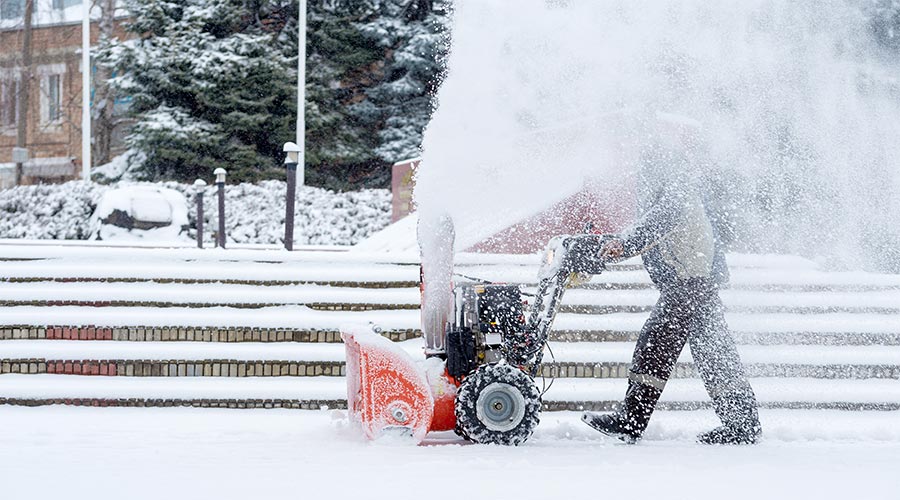
Contributed by the Outdoor Power Equipment Institute (OPEI)
Snow flurries and winter storms can be unpredictable and the Outdoor Power Equipment Institute (OPEI) encourages home and business owners to prepare in advance before bad weather hits. “Outdoor power equipment like snow throwers can make quick work of a big job,” says OPEI President and CEO Kris Kiser. “Just remember, when getting out your snow thrower, review your owner’s manual. You should know how to correctly operate controls and quickly shut it off if necessary.”
OPEI offers 12 Questions to ask before operating a snow thrower.
Have you read your owner’s manual?
Know safe handling procedures and how to operate the controls of your machine. If the manual cannot be found, look it up online and store a copy on the computer.
Have you checked your equipment?
Equipment should be powered off when checking it. Adjust any cables and check the auger. If you forgot to drain the fuel before storing your equipment last year, empty the gas tank.
Have you purchased the right fuel?
Be sure to use the fuel recommended by the equipment manufacturer. Fuel that is more than 30 days old can phase separate and cause operating problems. Buy gasoline ahead of a storm.
Is gasoline used safely?
Never add fuel to a running or hot engine. Store gasoline in a fuel container and label with date purchased and ethanol content. Make sure fuel is stored safely and out of reach of children.
Are batteries charged (for battery-powered equipment)?
Make sure batteries are fully charged before a storm, in case electricity goes out. Recharge only with the charger specified by the manufacturer. A charger that is suitable for one type of battery pack may not be compatible with another battery pack. Follow all charging instructions and do not charge the battery pack or equipment outside the temperature range specified in the instructions. Charging improperly or at temperatures outside the specified range may damage the battery.
Is the space clear of obstructions?
Snow can hide objects. Doormats, hoses, balls, toys, wires, and other debris should be removed. When run over by a snow thrower, these objects may harm the machine or people.
Operating Snow Throwers Safely
Are you dressed properly?
Wear safety glasses, gloves and footwear that can handle cold and slippery surfaces. Is your clean out tool ready? Never put your hands inside the auger or chute. Use a clean out tool to unclog snow or debris. Always turn off the snow thrower and wait for all moving parts to come to a complete stop before clearing any clogs.
Is your snow thrower operated only in visible conditions?
Never operate the snow thrower without good visibility or light.
Will you use extreme caution clearing slopes and hills?
Never attempt to clear steep slopes. Use caution when changing directions on slopes or inclines.
For electric equipment, do you pay attention to where the cord is?
Use an extension cord designed for outdoor use. Be aware of where the power cord is at all times when using the machine. Avoid tripping. Do not run over the power cord.
Are children inside while the snow thrower is operating?
It’s best to keep kids indoors and supervised while a snow thrower is operating. Do not allow them to play in the snow as it is tossed out of the chute.

 The Down and Dirty on Cleaning in Virus Season
The Down and Dirty on Cleaning in Virus Season How Surfactant Use is Expanding in Commercial Cleaning
How Surfactant Use is Expanding in Commercial Cleaning